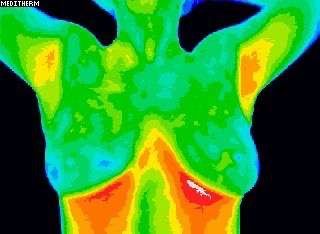This week, in continuing with our focus on colon health, we will briefly discuss food sensitivities. Often people confuse food sensitivities with food allergies or food intolerances. While all of these can cause unwanted symptoms, they actually effect the body in very different ways.
A true food allergy is a very specific type of immune-mediated response to a particular food. It is known as a Type 1 hypersensitivity, or an IgE-mediated hypersensitivity. Essentially, the individual’s immune system reacts adversely to the proteins in a food via a specific antibody pathway. This immune system activation results in the classic “allergy” symptoms: from the minor runny eyes, stuffy nose, and hives, all the way to a full anaphylaxis response that can be life-threatening. We all have a friend who can not go near peanuts, eggs, strawberries or some type of food because of the obvious and severe reactions that occur.
A food intolerance isn’t about an inflammatory response to a particular food; it’s about our ability to digest it. The most common example of this is lactose intolerance. Our bodies require the enzyme lactase to break down the primary milk sugar, lactose. You can also develop an intolerance to meat, sugar and fats. Most of the time this occurs because a person lacks the enzymes necessary to properly break down a certain food…like lactose, maltose or protease. People who suffer from food intolerances will likely have IBS type symptoms like constipation, and/or diarrhea. These intolerances can often be helped with proper changes in diet and the addition of digestive enzymes.
Food sensitivities, on the other hand, are far harder to identify and virtually go unaddressed by traditional medicine. Your body can trigger responses in a multiple of mechanisms to an exposure of a food you are sensitive to: some responses originate in the immune system (what we call an “immune-mediated” response); some happen directly in the cell without direct involvement of the immune system (what we call a “cell-mediated” response). Regardless of the route it takes in the body, the end result is the release of mediators – histamines, cytokines, and prostaglandins – that cause inflammation. And this inflammation can affect many different parts of the body…including the brain, skin, gut, colon, respiratory system, etc. The biggest problem with food sensitivities is they often go undiagnosed, and continue to create even more issues as their destruction progresses.
The list of symptoms and issues that can indicate food sensitivities is long and all-encompassing. Here are the most common:
• Digestive issues such as gas, bloating, constipation, diarrhea, or any kind of digestive distress. These issues can range from mild discomfort after eating to serious IBS (irritable bowel syndrome).
• Headaches of any type, including migraines.
• Skin issues. Eczema is the classic food sensitivity skin response, but any number of rashes or irritations can be connected to food. sensitivities.
• Pain and inflammation
• Fatigue
• Brain fog
• Excess mucus production
• Food cravings
• Allergies and asthma
• Fibromyalgia
• Auto-immune issues
Does having one or more of these symptoms mean you have food sensitivities? Maybe. And it’s certainly worth further investigation to determine whether or not you do. Remember, food sensitivities left untreated not only leave you with some of the unwanted symptoms above, but they also can be silently destroying the health of your gut and colon.
It you would like help in understanding this better, or with determining how to best address this issue, please contact Pure Nutrition and Wellness at 844-787-3935 to schedule an appointment, or at [email protected].
Be Well,
Donna Stephens
BCN, CNHP, LDHS




















